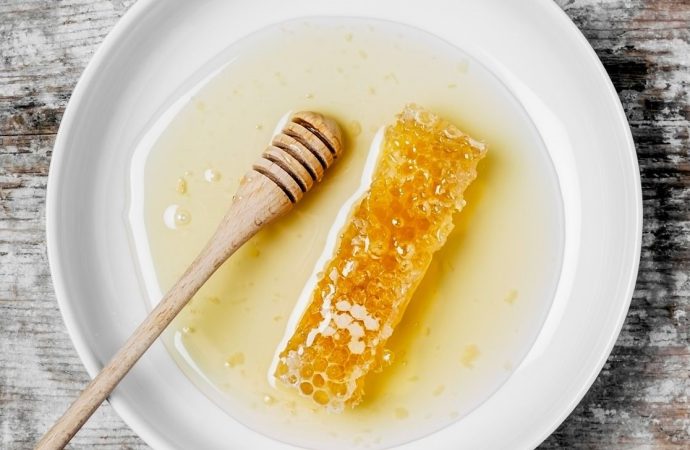About the Author: Sarah Jones is a certified wellness coach passionate about empowering individuals to live a healthy and fulfilling life. Through her personal journey with seasonal allergies, she has explored various natural solutions and is excited to share her knowledge to help others breathe easier. The Pesky Problem: Unveiling Seasonal Allergies The arrival of
About the Author:
Sarah Jones is a certified wellness coach passionate about empowering individuals to live a healthy and fulfilling life. Through her personal journey with seasonal allergies, she has explored various natural solutions and is excited to share her knowledge to help others breathe easier.
The Pesky Problem: Unveiling Seasonal Allergies
The arrival of spring and summer brings joy to many, but for those suffering from seasonal allergies, it can be a time of sniffles, itchy eyes, and constant congestion. Don’t despair! While traditional medications offer relief, there are also natural solutions you can explore to manage your symptoms and breathe easy throughout the season.
Understanding Your Enemy: Common Allergens and Triggers
Seasonal allergies, also known as hay fever, are an immune system response to airborne allergens like pollen, dust mites, and mold spores. When your body encounters these triggers, it releases histamines, causing allergy symptoms. These symptoms can include:
- Runny or stuffy nose
- Itchy, watery eyes
- Sneezing
- Coughing
- Postnasal drip
- Fatigue
Knowing your specific triggers is the first step towards effective management. Common seasonal allergens include:
- Tree pollen (spring)
- Grass pollen (summer)
- Ragweed pollen (fall)
- Dust mites (year-round)
- Mold spores (year-round)
Ditch the Drugs: Embracing Natural Solutions
There are a variety of natural approaches you can take to combat seasonal allergies and find relief without medication. Here are some effective strategies to explore:
Let Food Be Thy Medicine: Dietary Strategies for Relief
What you eat can significantly impact your allergy symptoms. Here’s how to leverage your diet for natural relief:
- Include Anti-inflammatory Foods: Load up on fruits and vegetables rich in antioxidants, like berries, leafy greens, and tomatoes. These foods help reduce inflammation in the body, which can lessen allergy symptoms.
- Consider a Quercetin Boost: Quercetin, a natural antihistamine found in apples, onions, and citrus fruits, may help alleviate allergy symptoms by reducing histamine production.

Picture by: Yandex.com
Let’s Create a Visual Table!
| Dietary Strategy | Benefit |
| Anti-inflammatory Foods (fruits, vegetables) | Reduces inflammation, lessens allergy symptoms |
| Quercetin-rich foods (apples, onions, citrus) | Acts as a natural antihistamine, provides relief |
Soothing Solutions: Natural Remedies for Everyday Comfort
In addition to dietary changes, several natural remedies can provide comfort and relief from allergy symptoms:
- Sinus Rinse: Regularly using a saline nasal rinse can help clear out allergens and mucus, promoting drainage and reducing congestion.
- Local Honey: Raw, local honey may help reduce allergy symptoms by introducing small amounts of local pollen. This can help your body build tolerance gradually. (Discuss with your doctor if you have any concerns about allergies to honey)
- Essential Oils: Diffusing diluted peppermint or lavender essential oil may help alleviate congestion and promote relaxation.
Beyond the Basics: Lifestyle Habits for Long-Term Management
Simple lifestyle changes can significantly reduce your exposure to allergens and minimize allergy symptoms:
- Monitor Pollen Counts: Check daily pollen forecasts and limit outdoor activities when pollen levels are high.
- Shower After Spending Time Outdoors: Rinse off pollen clinging to your hair and skin after being outside.
- Invest in an Air Purifier: An air purifier with HEPA filters can help remove allergens like pollen and dust mites from your indoor environment.
Nature’s Powerhouse: Supplements to Consider (Optional)
While not a substitute for a healthy diet and lifestyle, some natural supplements may offer additional relief for seasonal allergies. These include:
- Vitamin D: Studies suggest Vitamin D deficiency may be linked to worse allergy symptoms.
- Probiotics: A healthy gut microbiome is essential for overall health, and probiotics may help modulate the immune response and potentially reduce allergy symptoms.
Remember:
It’s important to note that while these natural remedies can provide significant relief, consulting a healthcare professional is crucial for personalized recommendations. They can help you determine the best course of action for managing your seasonal allergies and ensure your chosen methods are safe and effective for you.
Embrace the fresh air and enjoy a symptom-free season with the power of nature!
















